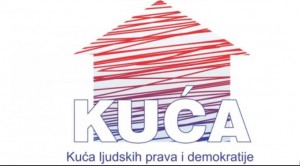Press Release on International Day in Support of Victims of Torture
On 26 June, International Day in Support of Victims of Torture, the Belgrade Centre of Human Rights alerts the public to the fact that offences of torture and other forms of ill-treatment in Serbia still go largely unpunished, that the few perpetrators actually found guilty of these crimes – are handed down extremely lenient sentences, usually conditional prison sentences, while the courts regularly neglect the victims’ right to redress and refer them to file damage claims, resulting in their revictimisation and additional expenses. The realisation of the victims’ rights, especially to redress, is further undermined by the discontinuation of criminal prosecution for such offences due to the expiry of the statute of limitations. The victims are again merely left with the possibility of launching civil proceedings to prove they had suffered “civil law damages”, while the criminal liability of their torturers and abusers can no longer be ascertained.
The numerous cases of police brutality during the July 2020 protests illustrate the impunity of public officials for torture and other forms of ill-treatment. None of the implicated officers have been punished for their brutality during the protests; only a few, those who participated in the incident in Novi Sad, have been identified. The Belgrade Public Prosecution Office took the statements of most victims only in the spring of 2021. The only procedure in which the police were found guilty of ill-treatment and violating civil rights was the one concerning eight cases that was conducted by the Protector of Citizens, who, however, missed the opportunity to require of the state to afford redress to the victims of police abuse without delay.
The BCHR also draws attention to this year’s messages of UN experts, that torture victims are entitled to rehabilitation and that individuals, experts and civil society organisations assisting them in the process have the right to carry out their work unfettered of restrictions and reprisals. The UN human rights experts expressed concern that torture survivors continued to face challenges in accessing redress and reparations, including the fullest rehabilitation possible. They urged States to “enable a conducive environment for redress and rehabilitation for victims of torture, and for civil society to operate freely.”
In their joint statement, UN human rights experts said that the trend of reprisals, through restrictive and retaliatory measures against civil society and torture survivors seeking redress through the UN mechanisms remained prevalent and that impunity was widespread across the world. “Governments continue to systematically deny the existence of such abhorrent practices, refuse to prosecute perpetrators and use intimidation and reprisals against civil society organizations, human rights defenders, whistleblowers and journalists in order to deter them from speaking out and obtaining redress for victims.”
The BCHR has for over a decade now been analysing court and prosecutorial cases concerning torture and ill-treatment at the hands of public officials. Our experience and direct work with the victims demonstrates that victims of torture in Serbia face obstacles at all levels as they attempt to obtain justice and rehabilitation.








